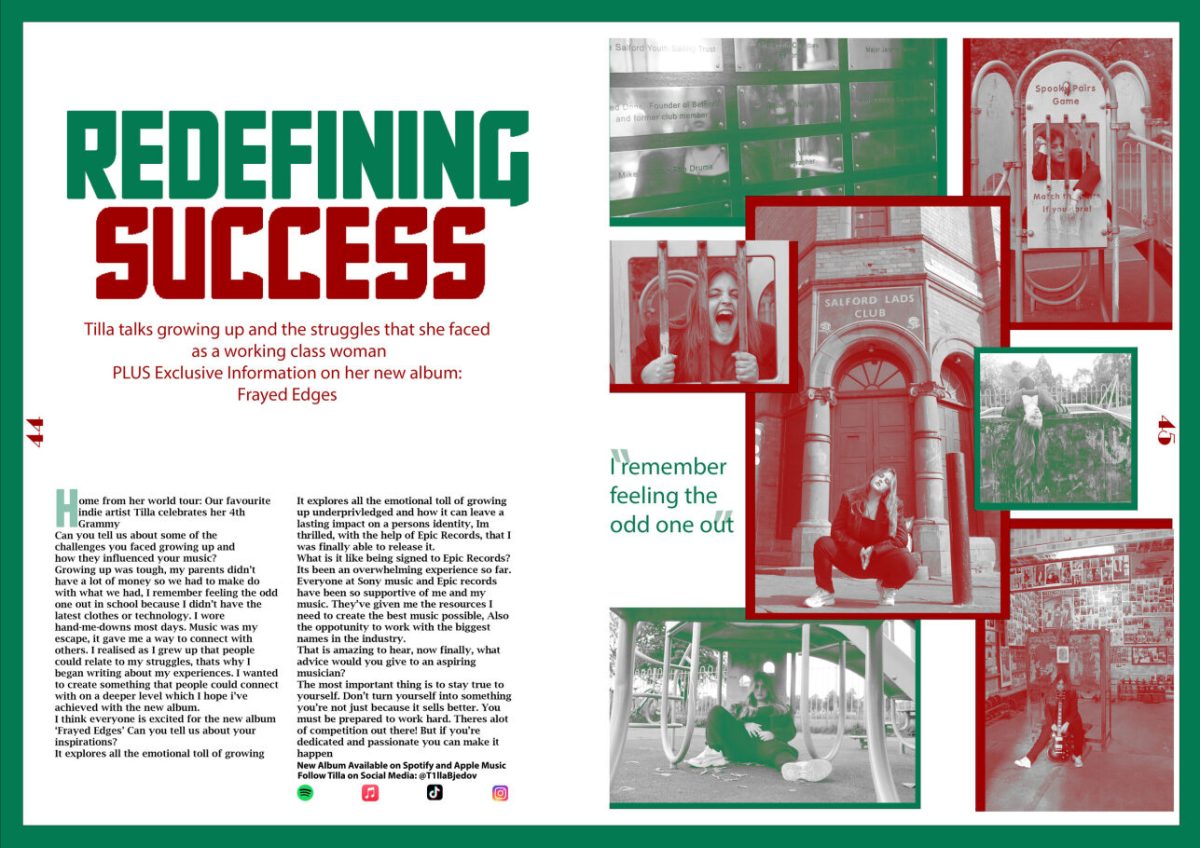What’s the collective noun for a group of fangirls? A pandemonium? An army?
Since the summer, my status as a ‘fangirl’ has been pretty much confirmed. In August, I was lucky enough to see Boygenius live in Halifax and, just before that, I got tickets to see Taylor Swift in the Eras Tour. Am I bragging? Yes, I am. Whilst I can’t confirm how I’ll take the Eras Tour, I can safely say that seeing Boygenius live was probably the most religious experience I’ve ever had. Being in a crowd of screaming, crying teenage girls, whilst screaming and crying myself, was probably my highlight of the year.
However, I’ve been reminded of how apparently abhorrent it is for a teenage girl to like something mainstream. Haven’t you heard? Being ‘not like other girls’ is the only acceptable female archetype. If you want the status of a ‘real’ appreciator of music, dousing yourself in internalised misogyny is the only way. It also turns out that The Beatles and Elvis Presley are the new ‘niche’ and the alter upon which music patriarchs worship. These ‘fans’, often men with a guitar and an overexposure to Andrew Tate, conveniently forget that The Beatles and Elvis were essentially made and promoted by the same screaming, crying teenage girls that they loathe.
Whilst under a different name, the ‘fan girl’ has been in existence since the early 20th Century. The ‘movie struck girl’ of the 1910s, seen as undisciplined, immature and narcissistic, was characterised at around the same time as the beginnings of psychoanalysing the female adolescent. In 1904, American psychologist G. Stanley Hall described the teenage girl as: “a more generic being… [who] loves to have her feelings stirred because emotionality is her life.” It seems no coincidence that the resemblance between the self-obsessed ‘movie struck girl’ and Hall’s description of all female adolescents were so similar: it served as the perfect blueprint for wider society’s demeaning presentation of both media-consuming girls and the female sex as a whole.
The baby boom of the 1940s and 1950s meant the rise of a new subculture for the youth, leading to the coining of the term ‘teenager’ and the emergence of rock and roll. The success of sensations like Elvis Presley can be traced back to their popularity amongst teenage girls and the respective disgust of disapproving male onlookers. Reporter Mac Reynolds in the Vancouver Sun on August 31, 1957, said about Presley’s show: “It is a frightening thing for a man to watch his women debase themselves… [girls who] screamed, and quivered, and shut their eyes and reached out their hands to him as for salvation”. From this, I must draw the conclusion that the hostility towards female fandom can be attributed to men’s deeply entrenched feelings of ownership with regards to both culture and the girls who dare view it.
Martha (16) a Xaverian student said: “mainly female fan bases are seen as less-than or embarrassing, whilst being just as obsessed with sports is considered masculine and is socially accepted.” She said fangirls: “shouldn’t be a term that pigeonholes people for their interests but instead should represent what you as a person find interesting and enjoy.” It can be argued that fandom can be a healthy contributor to the development of adolescents. In an interview with Teen Vogue, Lisa Bahar, a therapist that specialises in working with teenage girls- stated: “It is normal and healthy for teens to align and connect more and more with their peers than their parents. We call this process individuation.”
Girls’ engagement with art, music, film or television, acts as a key stage in their development into autonomous individuals: it seems disturbing to me that this process is actively discouraged by male music maniacs. Condescending attitudes towards teenage girls and their interests have always existed. Through this, more subtle facets of misogyny exist and thrive under the guise of ‘protecting’ culture. Fear of social judgement forces women and girls to be dictated by the expectation of assimilation and demureness. Fangirl-ism is not hysterical or ridiculous. It is the rejection of conformity and the developing of female autonomy.







































Jacqui Shirley - Organiser • May 9, 2024 at 9:04 am
A great celebration of fan girls